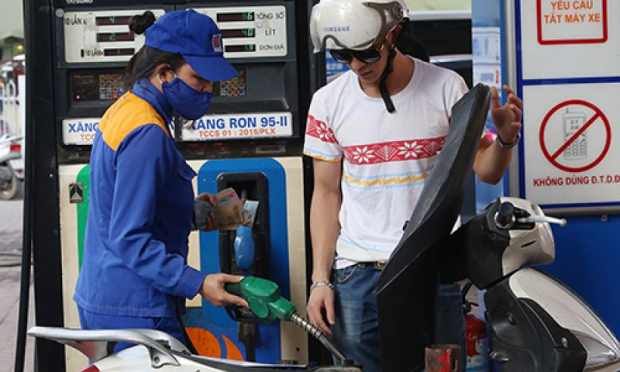The local consumer price index (CPI) fell to the lowest level in five years this month, but for the first five months of the year, the CPI still peaked due to rising pork prices.

The local consumer price index (CPI) fell to the lowest level in five years this month, but for the first five months of the year, the CPI still peaked due to rising pork prices.
According to the General Statistics Office (GSO), the CPI in May decreased by 0.03 per cent compared to April, down 1.24 per cent from last December – the lowest level since 2016.
However, the average CPI of the first five months of this year still increased by 4.39 per cent over the same period in 2019.
The CPI reduction in May was because of reduced prices of four groups of goods and services.
Prices of the transport group decreased by 2.21 per cent due to low of petrol costs in late April as well as a sales and promotion programme to boost automobile buying. Prices of cars fell by 0.25 per cent, said the GSO.
Prices of the post and telecommunications groups, culture, entertainment and tourism, along with garment and footwear also decreased slightly in May due to different discount programmes to attract customers as the pandemic eased.
Food and catering services increased as pork prices soared due to African swine fever. Lack of domestic pork supply pushed the price up by 4.13 per cent. Higher pork prices also pushed the consumption of fresh poultry up by 0.92 per cent.
GSO said inflation in May 2020 excluding fuel and goods and services prices, which were adjusted by the State, decreased by 0.03 per cent compared to the previous month, but increased by 2.54 per cent from May 2019.
Average inflation of the first five months increased by 2.88 per cent from the same period in 2019.
The GSO said inflation was controlled in May even when pork prices were increasing.
This was thanks to the Government’s synchronous implementation of support policies for local businesses and people during the COVID-19 pandemic.
It was also helped by an initiative to control petrol prices and the proactive monetary policy of Viet Nam.
Before the pandemic, the National Assembly set the target of CPI at lower than 4 per cent, but Do Thi Ngoc, director of price statistics department at the GSO said: "Pulling the CPI below 4 per cent is a huge challenge."
She mentioned local gold prices kept growing under the global trend.
Ngoc added: “To rescue the economy affected by COVID-19, many central banks have pumped money into the economy, increasing the risk of devaluation of the currency and also increasing the chances for gold prices to grow.”
As of May 24, the global gold priced increased by 1.41 per cent compared to April while the local gold prices increased by 2.41 per cent in the same period, respectively.
Ngoc said: “The key point is to drag pork prices down.
“The GSO has requested the Ministry of Agriculture and Rural Development and the Ministry of Industry and Trade to review prices from all stages from raising, purchasing, slaughtering and transporting the products to find the unreasonable factors in price formation and bring prices back to the true value.” — VNS





